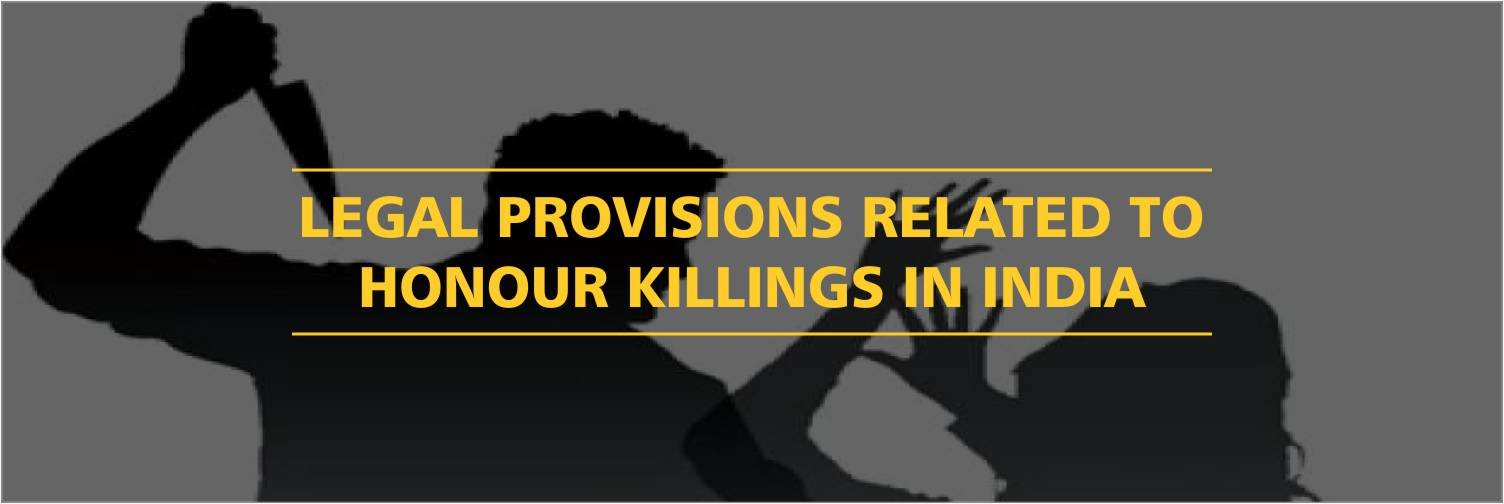There are various rules in the Hindu Marriage Act, 1955, addressing a legitimate divorce, i.e. when the spouse can request divorce. For the sake of society, marriage or married relationships must be encircled by every legal safety for the reason stipulated by law. For that matter, you’ll need the best divorce lawyer who can guide you through the process of how to file a divorce case in Dehradun. Because there are a lot of legal proceedings which an experienced lawyer knows the best.
Divorce Under Hindu Marriage Act, 1955
Divorce is only permissible when there is a compelling cause to do so; otherwise, other options are available. The Hindu Marriage Act, 1955, was initially founded on the blame theory, according to which any of the aggrieved spouses (Section 13(1)) can approach a court of law and ask for a divorce. Section 13(2) specifies the grounds on which only the wife may petition a court of law for divorce.
Other than this, Section 13-B of the HMA, 1955, allows couples to file for a mutual divorce on the ground of irretrievable breakdown of marriage.
Grounds For Divorce in Dehradun Under Hindu Marriage Act
Under the Hindu Marriage Act, 1955, there exists following grounds of divorce such as:-
- Fault Ground (Section 13(1))
- Breakdown Ground (Section 13(1A)(i), 13(1A)(ii))
- Divorce By Mutual Consent (Section 13-B)
- Customary Divorce (Section 29(2))
1. Fault Ground (section 13(1))
Divorce blame theories are also known as offence theories or guilt theories. As a result, it emphasizes the fact that a marriage can be dissolved if any of the parties inside the marital bond commits an infraction against the marriage’s innocent partner. As a result, inside the married connections, a guilty and an innocent spouse are required. The innocent party merely has the right to seek divorce redress. The most remarkable element, however, is that if both parties are at fault, there is no recourse accessible to them.
Section 13(1) of the Hindu Marriage Act of 1955 specifies nine grounds for divorce. Adultery, Desertion, Cruelty, Insanity, Leprosy, and Venereal Disease are some of the causes, while others, such as Conversion or Renunciation of words, are generally Hindu grounds.
i. Adultery:
In many nations, the notion of adultery is not regarded as a crime. However, according to the Hindu Marriage Act, adultery is one of the most essential grounds for obtaining divorce in a marital infraction. Adultery is defined as the consenting and voluntary intercourse of a married individual with another member of the opposite sex, married or unmarried. Even if the relationship between the husband and his second wife is regarded bigamy, the individual is accountable for adultery.
The Marriage Laws Amendment Act of 1976 added the notion of adultery into the Hindu Marriage Act.
Essentials of Adultery:
- One of the spouses participating in an extramarital affair with another person of the opposite sex, married or unmarried.
- Intercourse should be mutual and voluntary.
- The marriage was still in existence at the moment of the act.
- There must be sufficient circumstantial evidence to substantiate another spouse’s responsibility.
ii. Desertion
Desertion is defined as the permanent abandoning of one spouse by the other spouse for no justifiable cause and without his permission. In general, one party’s refusal to accept the commitments of marriage. The term “desertion” refers to the abandonment of the petitioner by the other party to the marriage without reasonable cause and without the consent or wish of such party, and includes wilful neglect of the petitioner by the other party to the marriage, and its grammatical variations and cognate expressions shall be interpreted accordingly.
The offense of desertion is a course of conduct that exists irrespective of its duration; nonetheless, as a reason for divorce, it must exist for at least three years prior to the presentation of the petition or, if the offence appears as a cross-charge, of the response. Desertion as a divorce basis varies from the statutory reasons of adultery and cruelty in that the offence underlying the purpose of motion for divorce isn’t necessarily full, but is inchoate, until the healthy is formed. Desertion is the continuation of the crime.
Essentials of Desertion:
- Permanent abandonment of the other spouse.
- Rejection of the obligation of marriage.
- Without any reasonable justification.
- No consent of another spouse
iii. Cruelty
Cruelty was not grounds for divorce prior to 1976. It was justification for judicial separation. Cruelty is now a cause for divorce under the Amendment Act. According to the Oxford Dictionary, The term “cruelty” has not been defined, and it has been used in reference to human action or human behaviour. It is the behaviour with regard to or in relation to marital status responsibilities and obligations. It is a course of action that is adversely affecting the opposite. Cruelty may be either mental or physical, deliberate or accidental.
Cruelty encompasses both mental and physical manifestations. When one spouse abuses or injures the other spouse, this is referred to as physical cruelty. However, the idea of mental cruelty was introduced since the spouse might be mentally tortured by the other spouse. Mental cruelty is defined as a lack of compassion that has a negative impact on a person’s health.
iv. Insanity
The following two conditions must be met for insanity to be used as a reason for divorce:
- The spouse has been mentally unsound for an indefinite period of time.
- The spouse has been suffering from a mental disorder of such a nature and extent that the petitioner cannot fairly be expected to live with the said spouse.
v. Venereal Disease
If any of the spouses suffers from a sexually transmitted disease that is incurable and transmittable, it is ground for divorce. An illness such as AIDS is referred to be venereal disease.
vi. Renunciation
“Renouncing the world” means renouncing worldly pursuits in order to live a religious existence. The Hindu Marriage Act is referred to in section 13(1)(vi). The term “renouncing” refers to formally resigning a few rights or, more specifically, believing in one’s position as successor or trustee.
To obtain a divorce under this clause two conditions must be satisfied:
- The respondent must have renounced the world, and
- He must have entered some other religious order
vii. Presumption of death:
According to the Indian Evidence Act of 1872, a person is deemed to be dead if he or she has not been heard of in at least seven years. The petitioner may be granted a divorce on this basis. However, under ancient Indian Hindu Law, a presumption of death is not the same as a presumption under contemporary law; a period of twelve years must elapse before it is presumed that a person has died. This presumption under the availability of regulation is not rigid, and death may also be inferred prior to the lapse of 7 years from proof of exceptional circumstances.
viii. Conversion
If one of the spouses converts his faith to another without the approval of the other spouse, the other spouse may petition the court for divorce.
Under the Hindu Marriage Act, Section (13)(1) clause (ii) divorce may be obtained if the respondent converted from Hindu to other Religion and ceased to be a Hindu. Under the clause two conditions must be satisfied:
- Respondent has ceased to be a Hindu, and
- He has converted to another religion.
2. Breakdown of marriage ground (Section 13(1A)(i), 13(1A)(ii))
Either party to a marriage, whether solemnized before or after the commencement of this Act, may also present a petition for the dissolution of the marriage by a decree of divorce on the following grounds:
a. that there has been no resumption of cohabitation between the parties to the marriage for a period of one year or more following the issuance of a judicial separation decree in a proceeding to which they were parties; and
b. that there has been no restitution of conjugal rights as between the parties to the marriage for one year or more after the passing of a decree for restitution of conjugal rights in a proceeding to which they were parties.
3. Divorce by Mutual Consent (Section 13B)
According to Section 13B, a person may submit a divorce petition with the mutual permission of both parties. If the partners desire to terminate their marriage by mutual consent, they must wait one year from the date of marriage. They must demonstrate that they have been living apart for at least a year and are unable to live together.
Sub-section (1) of Section 13B of the Hindu Marriage Act requires that the petition for divorce with mutual consent be filed before the court jointly among the events and that there were three other conditions of sub-section (1) explicitly:
- they have been residing separately for a period of 365 days,
- they have not been capable of living together and
- they’ve together agreed that the marriage has to be dissolved
4. Customary divorce:
Section 29(2) of the Hindu Marriage Act, 1955, allows for customary divorce. As per Section 29(2) of the Act a Hindu marriage can be dissolved by custom or conferred by any special enactment, whether solemnized before or after the commencement of this Act.
In a 2021 decision in the case of Smt.KrishnaVeniversus Union of India, WPA No. 2346 of 2018, delivered on February 18, 2021, the single Judge Bench of Justice Sabyasachi Bhattacharyya held that obtaining a customary divorce will not attract the exception envisaged under Section 29(2) of the Hindu Marriage Act. It has been made abundantly clear that the validity of such a divorce must be established by a declaration of divorce.
The Supreme Court in 2019 ruled that marrying a second time on the basis of a “customary divorce” from the first wife renders the second marriage void because the law states that a man and woman may marry only if they do not have a living spouse.
Marriages were dissolved through deeds of dissolution executed in the presence of the Panchayat rather than pursuing a formal decree of divorce through the Family Court and it was a custom for Jalandhar Jaats. Section 29(2) of the Hindu Marriage Act recognises and accepts it, making it valid and the same was held by the Hon’ble Delhi High Court in Prahlad Singh versus Seema @Vidhya, MAT.APP. (F.C.) 45/2021.
The court also relied on the Supreme Court in Balwinder Singh versusGurpal Kaur, wherein it was held, “Dissolution of marriage by divorce was unknown to Hindu law. However, in certain communities divorce was recognized by custom and the courts upheld such custom when it was not opposed to public policy. It was in this background that the social customs and usages which have on account of continuous and uniform observance over the years acquired force of law amongst certain communities have been expressly saved by Section 29(2) of the Hindu Marriage Act. A Hindu marriage may now be dissolved either under section 13 of the Act or under any special enactment or in accordance with any custom applicable to the parties.”
Grounds Of Divorce Available Just To Wife
Here are some grounds for divorce that are available just to wife.
i. Husband having more than one wife living
The wife is entitled to file a petition dissolving his marriage under clause I of sub-section (2) of Section 13 of the Hindu Marriage Act on the grounds that at the time of the solemnization of marriage between the petitioner and the respondent, the first wife of the respondent was alive.
ii. Rape, Sodomy or Bestiality
The wife has the right to divorce based on rape, sodomy, or bestiality against her husband under clause (ii) of sub-section (2) of section 13 of the Hindu Marriage Act.
A man is guilty of rape if he compels an unconsenting woman to engage in sexual intercourse, or when his permission is obtained by fear of life, or by falsely believing that she is his wife when she is not. However, a man cannot be charged with raping his own wife unless she is under the age of 15.
Sodomy or bestiality occurs when a man, woman, or animal engages in a sexual connection outside of the natural order. Under this Section, a man would commit marriage sodomy if he performed sodomy on his wife without her consent.
iii. Non-resumption of cohabitation after a decree of maintenance
The wife had an alternative cause for divorce under paragraph (ii) of sub-section (2) of Section 13 of the Hindu Marriage Act. The goal of including the aforementioned clause was to provide the woman the ability to divorce if her husband disregarded her or failed to support her after a maintenance judgement was granted in her favour.
iv. Repudiation of Marriage
Wife/applicant can file for divorce from husband on the grounds that she was under 15 years old when she was married but had rejected her marriage before reaching the age of 18, and, therefore, can be granted a divorce decree under Section 13(2)(iv) of the Hindu Marriage Act, 1955.
Who Can File for Divorce Under Hindu Marriage Act, 1955?
i. any person who is a Hindu by religion in any of its forms or developments, including a Virashaiva, a Lingayat or a follower of the Brahmo, Prarthana or Arya Samaj; or
ii. any person who is a Buddhist, Jaina or Sikh by religion; and
iii. to any other person domiciled in India and is not a Muslim, Christian, Parsi, or Jew by religion.
Can you file for divorce in Dehradun?
For filing a divorce case in Dehradun, we will have to ascertain the jurisdiction. For a divorce petition to be filed in Dehradun if:
i. the marriage was solemnized in Dehradun; or
ii. Dehradun was the last place of residence for the couple; or
iii. The wife presently resides in Dehradun.
How to File a Divorce Petition in Dehradun?
Before filing a divorce case in Dehradun, there are a lot of things you need to do. You cannot just straight away seek divorce. You need to be well-prepared for the exhaustive legal proceedings. Here are a few things to keep in mind while filing for divorce in Dehradun.
1. Identify what kind of divorce do you want
Before filing a divorce case, you will have to ascertain what kind of divorce you can file for. There are two kinds of divorce under the Hindu Marriage Act, 1955, which are:
i. Contest divorce; and
ii. Mutual divorce.
A contested divorce means that only one spouse wants divorce and hence, he/she is contesting for the same in the court of law. The grounds of a contested divorce are as follows:
a. Cruelty;
b. Adultery;
c. Bigamy;
d. Desertion;
e. Insanity;
f. Venereal disease;
g. Conversion to other religion;
h. Renunciation; and
i. Has not been heard of being alive for a period of seven years, i.e. presumption of death.
The wife under the HMA, 1955, can present a divorce petition on the following grounds as well:
a. The husband has been guilty of rape, sodomy or bestiality;
b. Her marriage (whether consummated or not) was solemnized before she was fifteen years old, and she rejected the marriage after reaching that age but before reaching the age of eighteen.
Divorce by mutual consent means that both the spouses are willing to jointly seek divorce.
Are you still confused about the kind of divorce you are seeking? Do not worry, contact the best divorce lawyers in Dehradun to help you navigate the technicalities involved in filing a divorce petition.
2. Find the best divorce lawyers in Dehradun for your case.
This is a rather important step. A lawyer not only helps you in filing a divorce petition in the court of law but also guides you through the whole process till the finality of the case. Finding the best divorce lawyer in Dehradun, therefore, becomes a crucial aspect of the divorce case.
3. Preparation of the divorce petition
For preparing a divorce petition, you need to narrate the whole timeline, starting from the day of your marriage to the day you decide to consult a divorce lawyer in Dehradun, to your divorce lawyer and provide sufficient proof to corroborate your story.
The next step is to gather all of the necessary documentation for a contested divorce. You may think of it as a discovery phase, and you’ll need one thing:
i. marriage certificate.
ii. The address of the matrimonial residence.
iii. Passport-sized wedding photos
iv. Proof of address for wife and spouse
v. Proof of the ground(s) taken for divorce
vi. Salary information for both spouses.
4. File the petition for divorce
After consulting with the best divorce lawyers in Dehradun, the next step is to file a divorce petition. The divorce petition will be filed in the District Court of Dehradun by your lawyer.
5. Admission of the petition and summoning of the other party
Once the court is satisfied, upon a preliminary glance over the divorce petition, that the Dehradun District Court has the jurisdiction to entertain the divorce matter, then the Court will issue summons to the other party (spouse) on a date fixed by the Court.
6. Appearance of the other party/spouse and filing of a reply
Upon receiving the summons, the other party/spouse has to make an appearance in the Dehradun District Court in front of the judge through his/her lawyer. The other spouse/party is also required to file a reply to the divorce petition filed by you.
7. Interim-orders
After the parties have filed their reply and/or counter petitions, the court will decide on interim applications, if any is filed, on child custody and/or maintenance and an interim order concerning the same will be passed by the Court.
8. Evidence and cross-examination
This is a very crucial stage of a divorce matter. Evidence lays down the groundwork for the final arguments and it is very important that you know that all of your right cards are at play, else you may end up losing a winning fight. Cross-examination is an art and only seasoned lawyers who are well versed with the technicalities of the same can deliver the same with perfection.
9. Final arguments
After the stage of evidence, the final arguments are presented before the court of law. It is important that the divorce lawyer is able to corroborate your story with the evidence that was presented before the court by both parties.
10. Final order
Finally, when all of the necessary facts and evidence satisfy the judge, the court will issue its final order. Then it is up to either of the spouses to decide whether or not to file an appeal against the ruling.
Conclusion
Go through the aforementioned information before filing for a divorce case in Dehradun. Choose the right lawyer who can help and support you in this phase.






